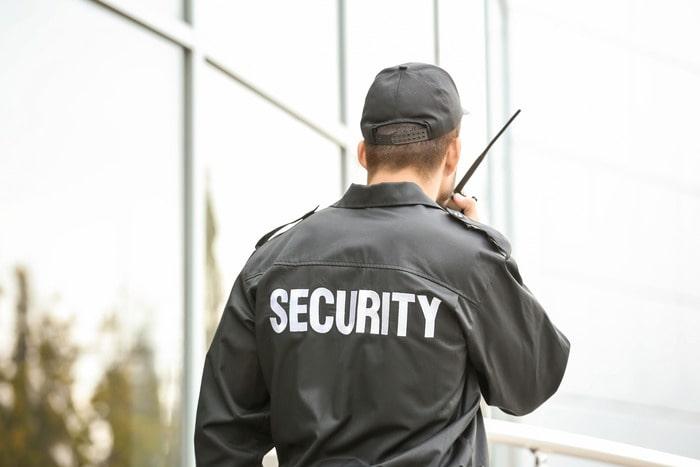In today’s globalized world, cultural sensitivity has become an essential skill for professionals in various fields. For event security guards, it is not just a bonus but a necessity. Cultural sensitivity ensures that security personnel can perform their duties effectively while respecting the diverse cultural backgrounds of attendees. It enhances trust, minimizes misunderstandings, and creates a safe and welcoming environment. This article explores the importance of cultural sensitivity in event security and provides practical strategies for integrating it into everyday practices.
The Role of Cultural Sensitivity in Security:
Security guards are often the first point of contact for event attendees, setting the tone for their experience. Events such as international conferences, multicultural festivals, or religious gatherings attract people from various backgrounds. A security guard's actions, tone, and demeanor can significantly impact how attendees feel about their safety and inclusion.
Cultural sensitivity involves understanding and respecting cultural norms, values, and practices. For security personnel, this means being aware of behaviors that may be acceptable in one culture but offensive in another. For instance, gestures like pointing a finger or making direct eye contact might be considered rude in certain cultures. Failure to acknowledge such nuances can lead to unnecessary tension and even escalate conflicts.
Challenges Faced by Security Guards:
Event security guards often operate in high-pressure environments where quick decisions are required. In such situations, cultural misunderstandings can arise unintentionally. Common challenges include language barriers, unfamiliarity with cultural norms, and dealing with culturally specific behaviors.
For example, some cultures may have strict rules regarding physical contact, especially between genders. A security guard unaware of this might unintentionally offend someone while performing routine checks. Similarly, addressing attendees in a tone perceived as authoritative might be misinterpreted as aggression in cultures that value politeness and deference.
Building Cultural Competence in Security Teams:
Cultural competence is the ability to interact effectively with people from diverse backgrounds. For event security guards, building cultural competence begins with education and training. Employers can provide workshops on cultural awareness, highlighting specific customs, traditions, and sensitivities relevant to the community or event they serve.
Additionally, fostering a workplace culture that values diversity can significantly improve cultural sensitivity. Encouraging security personnel to share their own cultural experiences and insights can create a deeper understanding within the team. Employing a diverse security workforce also ensures that guards can better relate to a broad spectrum of attendees.
Practical Tips for Security Guards:
Active Listening: Attentively listen to attendees and observe their body language to understand their needs and concerns without making assumptions.
Adaptable Communication: Use simple language, avoid jargon, and employ non-verbal cues like smiling or nodding to bridge language gaps.
Respect Personal Space: Be mindful of proximity when interacting with attendees, as perceptions of personal space vary across cultures.
Understand Religious Practices: Familiarize yourself with common religious practices, such as prayer times or dietary restrictions, to avoid unintentional disrespect.
Remain Calm and Patient: In tense situations, patience and a calm demeanor are crucial to de-escalating conflicts and ensuring everyone feels respected.
Case Studies of Success:
In recent years, several organizations have adopted cultural sensitivity training for their security teams, yielding positive results. For instance, a large music festival in Canada, known for its diverse attendees, implemented a cultural awareness program for its security personnel. The program included training on cultural greetings, religious practices, and body language. Post-event surveys revealed that attendees felt safer and more welcomed, attributing their positive experience to the respectful and understanding behavior of the security staff.
Similarly, at a major sports event in the Middle East, security guards received specialized training on local customs and religious sensitivities. Their preparedness ensured smooth interactions with attendees, resulting in fewer complaints and greater overall satisfaction.
The Benefits of Cultural Sensitivity:
Integrating cultural sensitivity into event security operations benefits everyone involved. For attendees, it fosters a sense of belonging and trust, making them more likely to comply with security measures. For security personnel, it reduces stress and conflict, allowing them to focus on their primary responsibility—ensuring safety.
From an organizational perspective, culturally sensitive security teams enhance the reputation of the event, attract a wider audience, and mitigate risks associated with cultural misunderstandings. It also demonstrates a commitment to inclusivity and respect, which is increasingly valued in today’s interconnected world.
Final Thought:
Cultural sensitivity is not just an ethical imperative but a practical necessity in event security. By understanding and respecting cultural differences, security guards can create a safe, inclusive, and harmonious environment for all attendees. Training, open communication, and a proactive approach to cultural competence are key to achieving this goal.



